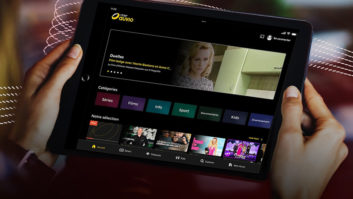A new study conducted jointly by Red Bee Media (formerly BBC Broadcast) and audience research agency iBurbia has highlighted the need for more innovative and tailored content on mobile platforms if audiences are going to fully engage with the format.
The findings in ‘Mobile TV – Attitudes to Broadcast on Mobile’ suggest that full length programming on mobile is not as popular as made for mobile TV because screen sizes are too small, opportunities to watch full-length programmes on-the-go are rare and subjects simply preferred to watch full-length programming on the TV.
“We talked with a broad range of people in this study and there was significant interest in concepts that complemented TV viewing with extra and exclusive content on mobile phones. But the content had to be sufficiently compelling to be worth the effort and there is a fear of billing abuse, meaning that cost needs to be made clear,” said Nigel Walley, CEO of Decipher, which owns iBurbia.
Results also suggested that the most successful mobile TV will be marketed with a prompt on the TV screen and targeted to a specific audience. Participants in the study found any content over three minutes too long, and anything over £1 (Ä1.4) too expensive.
“The recent Oxford trials confirmed that there is an appetite for mobile TV, but this research highlights how TV for mobile is wildly different from the TV of linear broadcasting. New rules for advertising, navigating and entertaining apply,” said Catriona Tate, business director, new creative content at Red Bee Media. “The results point towards the mobile TV market being driven in the short term by advertiser funded content and mobile video that compliments or promotes TV programmes”.
The qualitative study was produced by iBurbia in its interactive media research centre in West London. It included six focus groups – two groups made up of people aged 16-25, three 26-40 and one 41-60. One of these groups consisted of ‘gadget users’ (the 26-40 age group), the rest only having Freeview TV at home and mostly using their mobile phones just for calls.
The subjects were shown content specially made for mobile on mobile handsets that was created by Red Bee Media. The content included a sport clip, a comedy clip, a one minute mobidrama, an advertiser-funded programme, an interview with a football manager and a reality TV clip. As a comparison subjects were also shown a full length High Definition programme on a PSP (Portable Play Station) and a Freeview channel streamed live to a mobile phone.







